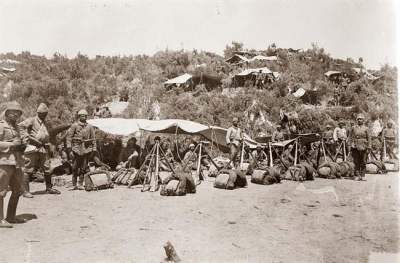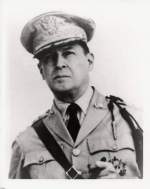
December 15
1896 Stephen M. Balzer patents rotary-engine auto:
On this day in 1896, the U.S. government awards Patent Number 573,174 to inventor Stephen M. Balzer for a gasoline-powered motor buggy that he built two years earlier. Balzer never mass-produced any of his cars, but his "experimental" vehicle was one of the first functioning automobiles to be built in the United States. Today, the Balzer car is on display at the Smithsonian Institution in Washington, D.C. It was the first gas-powered car in the museum's collection. . . .
Balzer incorporated the Balzer Motor Company in 1900, but he was more interested in tinkering with engines than in the business side of auto manufacturing, and so the company never made any money. Later, Balzer helped to design the motor in Professor S.P. Langley's famously ill-fated 1903 flying machine (after floating through the air for about 100 yards, it crashed and sank to the bottom of the Potomac River). After that, he spent his career designing and manufacturing surgical equipment. Balzer died in 1940. [For further information, click here]
1914 World War I: Various:
Serbia: Putnik's troops recapture Belgrade and soon drive the Austrian invaders from Serbia. Austrian casualties in this savagely fought campaign are approximately 227,000 out of 450,000 engaged. Serbian losses are approximately 170,000 out of 400,000.
The Battle of Lodz ends as the Russians retreat toward Moscow.
1915 World War I: British begin evacuation of Gallipoli:
On December 15, Allied forces begin a full retreat from the shores of the Gallipoli peninsula in Turkey, ending a disastrous invasion of the Ottoman Empire. The Gallipoli campaign resulted in 250,000 Allied casualties and a greatly discredited Allied military command. Roughly an equal number of Turks were killed or wounded.
1930 Volkishness: H. F.K. Guenther, "race-investigator," is invited by the National Socialist Minister of the Interior of the government of the Land of Thuringia to a chair of social anthropology at the University of Jena, against the wishes of the faculty. Professor Lenz comments: "We are happy about the appointment itself, despite our reservations about the way in which it was made."
1932 Volkishness: Karl Maria Wiligut, the Austrian occultist, flees his family and emigrates to Munich. He is 66 years old.
1933 Holocaust: Austrians are asked by Catholic leaders to do their Christmas shopping in non-Jewish stores.
1937 Holocaust: Polish bishops call for segregation of all Jewish students in Polish elementary schools.
1938 Antisemitism: The New York Daily News reprints a scurrilously antisemitic pamphlet by William Dudley Pelley.
1940 World War II: Various:
Romania:
North Africa: The British invade Italian Libya in force.
1941 World War II: Various:
War in the Pacific: The submarine USS Swordfish sinks a Japanese ship: After damaging several enemy vessels on the 9th, 11th, and 14th, Swordfish sank her initial victim of the war on 16 December. Hit amidships by one of three torpedoes, the cargo ship Atsutasan Maru erupted in a cloud of smoke and flames and disappeared beneath the waves.
Netherlands: Gas and electricity use is restricted.
1943 Various:
World War II: Italy:
Holocaust: Dec 15-18: Some 5,000 Jews are transported from Theresienstadt to Auschwitz, almost all are gassed on arrival.
1944 Various:
Hizbullah
Legendary bandleader Glenn Miller disappears over the English Channel:
General James Doolittle of the United States Army Air Forces (USAAF), hero of the daring "Doolittle Raid" on mainland Japan and later the unified commander of Allied air forces in Europe in World War II, offered the following high praise to one of his staff officers in 1944: "Next to a letter from home, Captain Miller, your organization is the greatest morale builder in the European Theater of Operations." The Captain Miller in question was the trombonist and bandleader Glenn Miller, the biggest star on the American pop-music scene in the years immediately preceding World War II and a man who set aside his brilliant career right at its peak in 1942 to serve his country as leader of the USAAF dance band. It was in that capacity that Captain Glenn Miller boarded a single-engine aircraft at an airfield outside of London on December 15, 1944--an aircraft that would go missing over the English Channel en route to France for a congratulatory performance for American troops that had recently helped to liberate Paris.
Churchill to Canadian Prime Minister King: To my mind the essential point is that, having obtained the written assent of all parties, including the E.A.M., the Greek Prime Minister invited British troops to enter Greece to keep order and safeguard supplies. We accepted this invitation, and must still do our best to carry it out. The task is ungrateful, but we could not in honor shirk our responsibilities. With tempers inflamed on both sides of Athens, the situation is inevitably difficult.
General Eisenhower is awarded his fifth star, by the US Congress.
War in the Pacific: US troops land on Mindoro:
Before the invasion of Luzon was to get underway, Gen. Douglas MacArthur needed a base of operations closer to the northern island than Leyte. Mindoro became a logical choice for this strategy. Just south of Luzon, and about half the size of the state of New Jersey, the island is covered by mountains, with a few narrow plains along its coast. Almost daily rains and high humidity, caused by clouds moving up from the south trapped by the high peaks made it a breeding ground for malaria and other tropical diseases. Furthermore, Japanese defenses on the island were minimal. The unsatisfactory condition of airfields recently constructed at Leyte were deemed unreliable, so the potential of more aircraft landing sites at Mindoro to support the Luzon operation appealed more to MacArthur. Taking it, however, proved a daunting task. Amphibious landings on its northeastern part were best, but were vulnerable to what was left of Japanese air power on Luzon, so this was ruled out. The town of San Jose on its southwest corner, though nearer to Mangarin Bay, Mindoro's best deepwater port, was the spot chosen by his planners. The U.S. Sixth Army under Lt. Gen. Walter Krueger was assigned to seize Mindoro. Krueger, in turn, gave the task to Maj. Gen. Roscoe B. Woodruff's 24th Infantry Division, with the 19th Infantry and the separate 503rd Parachute Regimental Combat Team of Lt. Col. George M. Jones, nicknamed The Warden , to spearhead the assault.
1945 MacArthur orders end of Shinto as Japanese state religion:
On this day, General Douglas MacArthur, in his capacity as Supreme Commander of Allied Powers in the Pacific, brings an end to Shintoism as Japan's established religion. The Shinto system included the belief that the emperor, in this case Hirohito, was divine.
On September 2, 1945 aboard the USS Missouri in Tokyo Bay, MacArthur signed the instrument of Japanese surrender on behalf of the victorious Allies. Before the economic and political reforms the Allies devised for Japan's future could be enacted, however, the country had to be demilitarized. Step one in the plan to reform Japan entailed the demobilization of Japan's armed forces, and the return of all troops from abroad . . . .
Step two was the dismantling of Shintoism as the Japanese national religion. Allied powers believed that serious democratic reforms, and a constitutional form of government, could not be put into place as long as the Japanese people looked to an emperor as their ultimate authority. Hirohito was forced to renounce his divine status, and his powers were severely limited--he was reduced to little more than a figurehead.
1961 Israel: Adolf Eichmann: Nazi SS colonel in World War II, is sentenced to death in Jerusalem for organizing the deportation of Jews to concentration camps: After considering the appropriate sentence for the Accused with a deep feeling of the burden of responsibility borne by us, we reached the conclusion that in order to punish the Accused and deter others, the maximum penalty laid down in the law must be imposed on him. In the Judgment we described the crimes in which the Accused took part. They are of unparalleled horror in their nature and their scope. The objective of the crimes against the Jewish People of which the Accused was found guilty was to obliterate an entire people from the face of the earth. In this respect they differ from criminal acts perpetrated against persons as individuals. It may be said that such comprehensive crimes, as well as crimes against humanity which are directed against a group of persons as such, are even more heinous than the sum total of the criminal acts against individuals of which they consist.
But at the stage of passing sentence consideration must also, and perhaps primarily, be given to the injury inflicted on the victims as individuals, which was implicit in these crimes, and the immeasurable anguish which they and their families suffered and still suffer to this very day because of these crimes. For the despatch of each train by the Accused to Auschwitz, or to any other extermination site, carrying one thousand human beings, meant that the Accused was a direct accomplice in a thousand premeditated acts of murder, and the degree of his legal and moral responsibility for these acts of murder is not one iota less than the responsibility of the person who with his own hands pushed these human beings into the gas chambers.
1978 United States announces that it will recognize communist China:
In one of the most dramatic announcements of the Cold War, President Jimmy Carter states that as of January 1, 1979, the United States will formally recognize the communist People's Republic of China (PRC) and sever relations with Taiwan.
1993 Schindler's List opens:
On this day in 1993, Schindler's List, starring Liam Neeson in the true story of a German businessman who saves the lives of more than a thousand Polish Jews during the Holocaust, opens in theaters. The film was nominated for 12 Academy Awards and took home seven Oscars, including Best Picture and Best Director. It was the first Best Director win for Spielberg, who had been nominated in the category for three of his earlier films . . . .
Schindler's List was adapted from Thomas Keneally's 1982 book Schindler's Ark, about the Catholic businessman Oskar Schindler, who saved a large number of Jews during the Holocaust by employing them in a factory that made supplies for the German army. The film co-starred Ben Kingsley as Schindler's Jewish accountant and Ralph Fiennes as an evil Nazi officer. [When congratulated on his achievements, Ben Kingsley replied that he had, indeed, made some wonderful films, but that Schindler was the best.—Ed.]
Edited by Levi Bookin (Copy editor) FAIR USE NOTICE: This site may contain copyrighted material the use of which has not always been specifically authorized by the copyright owner. We are making such material available in our efforts to advance understanding of historical, political, human rights, economic, democracy, scientific, environmental, and social justice issues, etc. We believe this constitutes a 'fair use' of any such copyrighted material as provided for in section 107 of the US Copyright Law. In accordance with Title 17 U.S.C. Section 107, the material on this site is distributed without profit to those who have expressed a prior interest in receiving the included information for research and educational purposes. If you wish to use copyrighted material from this site for purposes of your own that go beyond 'fair use', you must obtain permission from the copyright owner.
Please note that the list-owner and the moderators are not responsible for, and do not necessarily approve of, the random ads placed on our pages by our web server. Unfortunately, they are the price one pays for a 'free' website.



levi.bookin@gmail.com





 Click to join 3rdReichStudies
Click to join 3rdReichStudies
